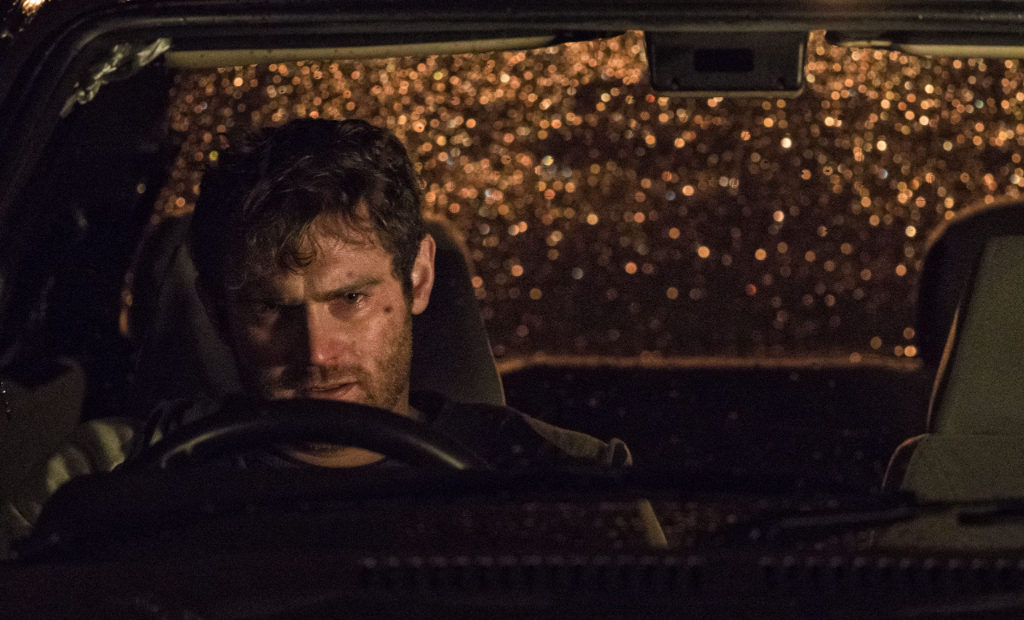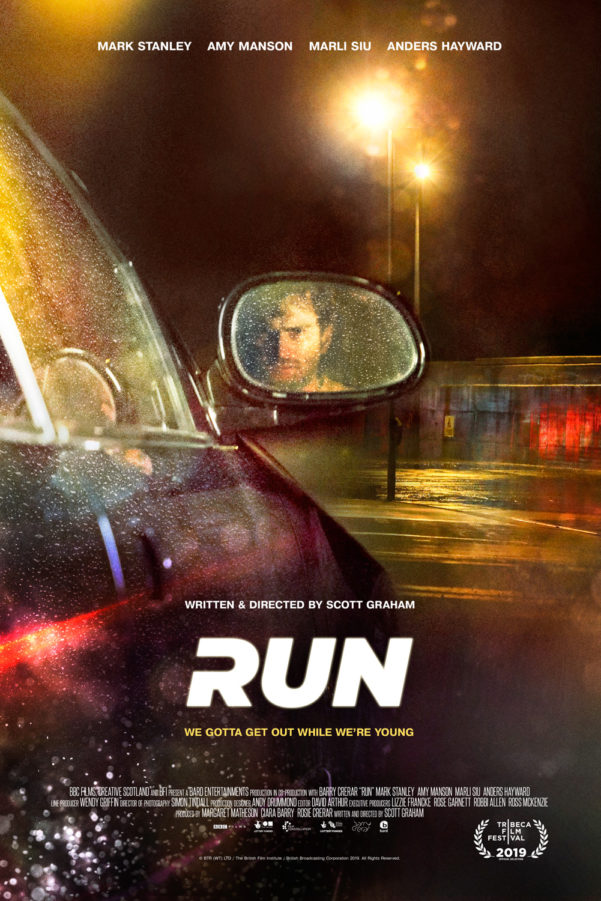Run

Director Scott Graham is slowly but surely building a style of his own with the release of each explorative feature. With previous works including Shell in 2012 and Iona in 2015, he is becoming renowned for his cinematic focus on the attitudes of people, presenting the realities of everyday relationship struggles that may never emerge above the surface, but simmer ominously below.
With Bruce Springsteen humming Run, much more of the same is to be expected for Graham’s new feature. Once again, the film is set in Scotland, in the less than desirable, yet sharply real fishing town called Fraserburgh. This is the residual home of Run’s protagonists, suggesting that the viewer needs to fasten their seat belt and prepare to encounter the ugliness of this world. Married with two children and working in a fishery, Finnie (Mark Stanley) is dissatisfied with the way his life has turned out. He and his wife Katie (Amy Manson) always dreamed of being free spirits, of travelling far and wide, so much so that they got matching tattoos stating “Born to Run”. Finnie’s chasing of dreams has come to an end, but he’s desperate to escape the lacklustre existence in which he now finds himself. He takes the keys to his son’s car and drives off into the night on a journey of self-exploration and painful realisation.
Continuing his steady rise to prominence, Stanley is strong, reserved and brooding in his performance as Finnie. Dominating the screen in every scene, this project must have been an exhausting affair for the actor. The themes of transformation and acceptance are stitched together into a story arc that is the epitome of “Human vs. Environment”. There are powerful performances from numerous cast members, however, including Manson and Marli Siu, the latter gives an exciting perception of a younger generation wishing to reach the same thrills and escapism that Finnie so desperately craves.
Frustratingly, there is one problem that comes with each character that is by no means a fault of the actor, but rather the writing. There is simply too much rage injected into the dialogue. Anger can make for some incredible acting, but when this turns into a constant barrage of fighting, fury and aggression, it becomes slightly unfulfilling. Character development suffers due to a lack of personality and unique traits are drowned out by the furious dialogue. Respite occurs with some experimental cinematography from Simon Tindall: long drives in the car and shots of the road from different angles inside of the vehicle. Although even these quickly become tiresome in their own way. With the film running at only an hour and 18 minutes, these takes could be removed, squeezing the movie into a one-hour primetime slot.
Although it is a minor foible to point out, a firm grasp of the characters’ Scottish accent and dialect is recommended. There are moments where the viewer is left bewildered by the conversations on screen, with scenes rolling from one to the next without explaining the slang-filled interactions. While this seems a silly hole to pick at, it is one that has an effect on the viewer’s experience and comprehension of the film. The excellent acting delivers the lines with vigour, but ultimately Run lacks the dramatic power and careful plot development required to make an impact.
Guy Lambert
Run is released nationwide on 13th March 2020.
Watch the trailer for Run here:

























Facebook
Twitter
Instagram
YouTube
RSS